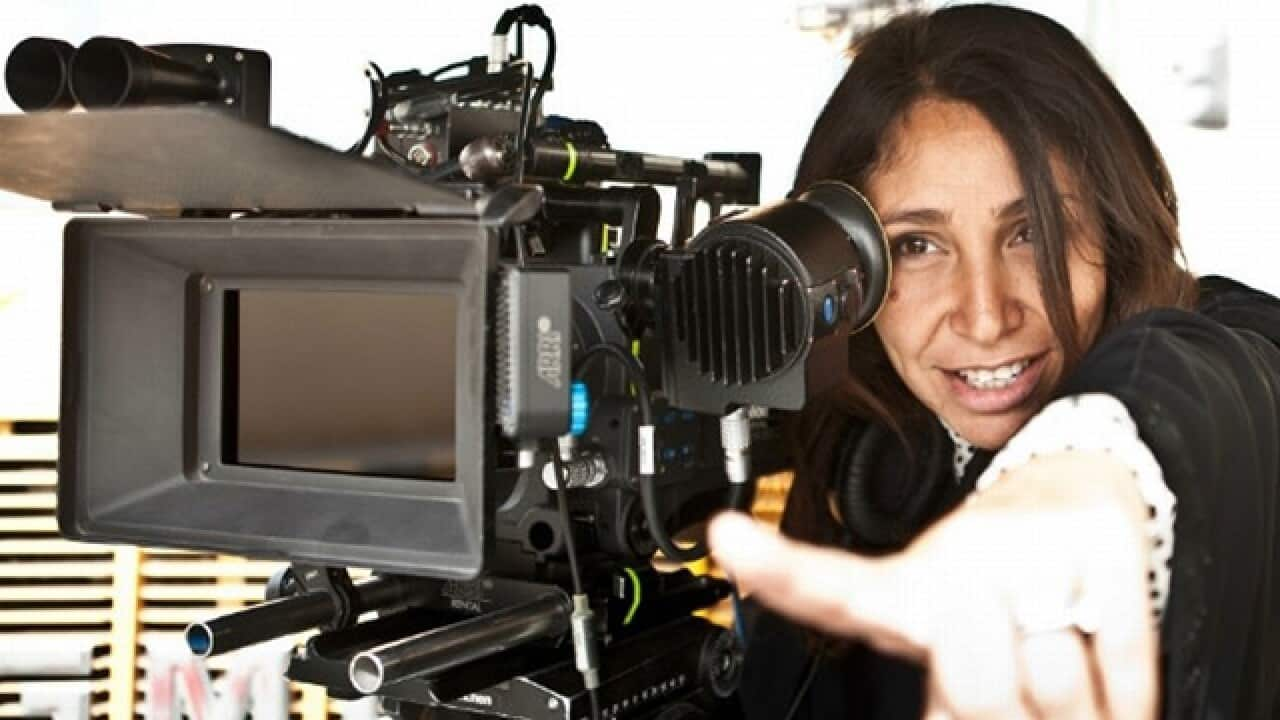Some of the best films in this year's Sydney Film Festival programme feature children: the American films and , as well as the German/Saudi Arabian co-production , which sits in its own category in every way.
I had to stay behind the veil and talk on the cell phone
The first full-length feature to be shot entirely in Saudi Arabia, most significantly Wadjda is the first feature film directed by a Saudi woman, Haifaa Al"Mansour, who started making the film six years after completing her master's degree in film from the University of Sydney. She had previously enjoyed success with her three short films, as well as international acclaim for her award-winning 2005 documentary Women Without Shadows, where she interviewed progressive young Saudi women.
Even if she loved movies as a child, Al Mansour didn't consider becoming a filmmaker until she was 30 as she was stuck in an unrewarding profession. “I was working at an oil company, and I thought no one was listening to me,” she notes. “I felt like I had no voice of my own.”
She has now found it – in no uncertain terms.
Since Wadjda world premiered at the Venice Film Festival last year, the film has become a sensation, especially in France where it's widely regarded as one of the year's best films so far. Everyone just loves Al Mansour's story of a precocious 10-year-old girl who is hellbent on raising the money to buy a bicycle so she can race with her buddy Abdullah. Wadjda's mother (simply called 'Mother' in the film) has refused to buy her one given that bicycles are considered dangerous to a girl's virtue. Still, she is preoccupied with her own problems as her husband (simply called 'Father') is keen to take a second wife, so that Wadjda (played by astounding newcomer Waad Mohammed) manages to stay under the radar while she cunningly pursues her quest.
Al Mansour, 38, who lives in Bahrain with her American diplomat husband and their two children (she arrived at her 2007 wedding driving a golf cart), explains how there is no film industry in Saudi Arabia. It doesn't help, of course, that movie theatres are still illegal in the country, so that Wadjda is only able to screen on television and DVD there. Interestingly, the mother in the film is played by Saudi's leading television actress, Reem Abdullah, who also makes her cinema debut here.
Given that in the conservative Islamic kingdom females are not allowed to ride bikes or drive and need a male guardian's permission to work, travel or open a bank account, we can only imagine what Al Mansour went through filming on the streets of Riyadh, the Saudi capital.
“I had to stay behind the veil and talk on the cell phone,” she explains, noting how she had to remain inside a specially customised van equipped with monitors and communication devices to work on scenes.
“We pushed the boundaries,” she admits, “though we had official permission and the backing of a big company like Rotana [the entertainment group of Prince Alwaleed bin Talai]. Saudi Arabia is opening up; it's not like before. It says something about the country that I was able to shoot there. It's slowly becoming a different place for women; we've also seen Saudi women at the Olympics for the first time in London. It's the time now for the women to believe in themselves and push and pursue their dreams, although it's hard and the society will not accept it. They say this woman should still stay a conservative within a very traditional society and people put pressure on the women to stay at home.”
Al Mansour was lucky in that she was born into a liberal family. Her father, the poet Abdul Rahman Mansour, who is clearly something of a radical like his daughter, screened movies at home on DVD. When her father bought her brothers a bike, he also bought one for his daughter, a green one like in the film. She clearly has never forgotten the impact it had.
“I come from a very small town [Dhahran] in Saudi Arabia, and like Wadjda, went to a public school,” she explains. “I wanted to do something close to my world. Luckily, my parents were very supportive and never denied me anything. I'm 1of 12 children, number 8 from the same mother and father, who always believed in giving us the space to be creative. But a lot of my friends never had that chance. All my friends in my hometown never realised their dreams and a lot of them had great potential to be divas,” she muses. “I wanted to make a film about them and inspire generations like mine.”
When it came to casting her lead, Al Mansour knew exactly the type of girl she wanted.
“Reem didn't expect to be chosen but she was really happy about it," Al Mansour recalls. “It was amazing to find her. You cannot have an open casting call for women in Saudi Arabia as it's unacceptable for women to be in front of the cameras. We had some scouts go and find her. She'd done a lot of local theatre and luckily someone referred her to us.
“When she walked in the room with her curly hair, jeans and head phones, I knew she was exactly right for the part,” Al Mansour recalls. “She's part of what is happening like anywhere in the world. She had that spirit about her, that love of life. She loves singing and was really keen to do something creative. She has a determination mixed with a sweet vulnerability that amazed us when we watched her.” Reem got to keep the bike in the film, by the way.
In the manner of the Iranian cinematic master, Jafar Panahi, Al Mansour is a fan of human stories. Wadjda is probably the best child-focused film from the region since Panahi's 1995 masterpiece, The White Balloon.
Like Panahi, Al Mansour wants to work inside the system. “I can engage people rather than fight with them,” she says, admitting she intentionally avoided making a didactic drama and chose to film inside the country even though it made her job more difficult. “I think it's very important for artists to be part of society and not look like elitists who think they understand more than other people do.
“I want people to enjoy my films. I'd like to say this film is also about art, but it's also about co-productions bringing two different cultures together. It's the first film from the Gulf region to have a German and Saudi crew coming together hand in hand. It's a cultural exchange behind the screen and that is also another step for Saudi Arabia to open up to other cultures – and to have things happen.”
The film's German producers, Razor Film Produktion, are on a roll. They have also produced , which has achieved huge success at the French box office as well. The Afghanistan-set film, which releases here on September 5, likewise focuses on female emancipation. It tells of a woman who cares for her comatose soldier husband and for the first time is able to speak to him without fear of censorship.
Watch 'Wadjda'
Tuesday 3 May, 7:40pm on SBS World Movies
Thursday 5 May, 2:00am & 10:10am on SBS World Movies
Thursday 5 May, 2:00am & 10:10am on SBS World Movies
Now streaming at SBS On Demand
PG
Saudi Arabia, 2012
Genre: Drama
Language: Arabic
Director: Haifaa Al-Mansour
Starring: Waad Mohammed, Abdullrahman Al Gohani, Reem Abdullah

MORE AT SBS:

‘Sorry We Missed You’ and the will to push on






